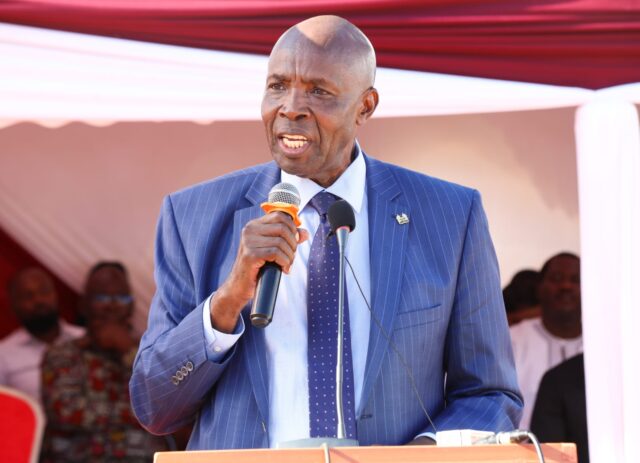
Education plays a crucial role in the development and progress of any nation. In Kenya, the government has recognized the importance of providing quality education to its citizens and has taken a significant step towards ensuring adequate funding for schools. The Ministry of Education recently announced that public secondary schools in the country will now receive full government capitation, increasing the funding per student from Ksh 17,000 to Ksh 22,244. This decision has been made in light of the country’s economic stability and aims to improve the overall quality of education.
The move to increase government capitation is a testament to the government’s commitment to investing in the education sector. Education Cabinet Secretary, Ezekiel Machogu, highlighted that the previous reduction in funding to Ksh 17,000 per student was due to the tight fiscal space and economic challenges faced by the country. However, with the country’s economic status showing signs of improvement, the Ministry of Education is now able to disburse the recommended capitation to schools.
- TSC to Deploy 6,000 Teachers to Special Schools – Addressing the Shortage of Educators

- The Impact of Low Teacher Pay on School Finances in Kilifi County

- Alert! Learners Staying Away from Public Institutions

- TSC Recruitment News: 26,000 Interns to be Confirmed into PNP and 20,000 Teachers to be Employed in JSS

- Orengo’s Call for Teachers to be Given a Slot at TSC – A Step Towards Empowerment

- Kenyan Government to Release Sh16.25 Billion in Capitation Funds for Secondary Education in 10 Days
The increase in funding per student will have a direct impact on the quality of education provided in public secondary schools. Adequate funding allows schools to invest in infrastructure development, educational resources, and teacher training, all of which contribute to an enhanced learning environment. With full government capitation, schools will have the financial means to provide better facilities and resources, ultimately benefiting the students and improving their educational outcomes.
It is important to note that the Ministry of Education faced significant challenges in the past due to a shortfall of Ksh 22 billion in funding. This shortfall resulted in only 68% of the capitation per learner being disbursed. However, the commitment to providing full government capitation signifies a positive shift in the government’s approach to education funding. By prioritizing education and allocating adequate resources, the government is demonstrating its recognition of the importance of investing in human capital for sustainable development.
In addition to addressing funding challenges, the Ministry of Education is also focused on aligning the country’s curriculum with international standards. This is a crucial step towards ensuring that Kenyan students are equipped with the skills and knowledge necessary to compete on a global scale. The reforms in the education sector seek to bridge the gap between the curriculum and the demands of the modern world, preparing students for the challenges and opportunities of the 21st century.
Education Cabinet Secretary Ezekiel Machogu emphasized that any proposed changes in the education sector would require the approval of Parliament, underscoring the significance of democratic processes in decision-making. This ensures that reforms are thoroughly scrutinized and debated, taking into account the diverse perspectives and interests of all stakeholders. By involving Parliament in the decision-making process, the government aims to ensure transparency, accountability, and the best possible outcomes for the education sector.
While the increase in government capitation is undoubtedly a positive step towards improving education funding, it is essential to remain critical and vigilant. Misinformation and misleading information can easily circulate, which may undermine the achievements and efforts made by the government. The public must rely on verified and credible sources of information, such as the Ministry of Education and reputable news organizations, to stay informed about developments in the education sector.
In conclusion, the decision to provide full government capitation to public secondary schools in Kenya is a significant boost to education funding. The increase in funding per student will contribute to the improvement of educational facilities, resources, and overall quality of education. Additionally, the efforts to align the curriculum with international standards reflect a commitment to preparing students for a rapidly changing world. However, it is important to remain critical of misleading information and rely on credible sources to ensure accurate understanding and interpretation of the government’s initiatives in the education sector.




